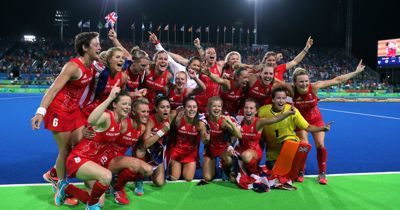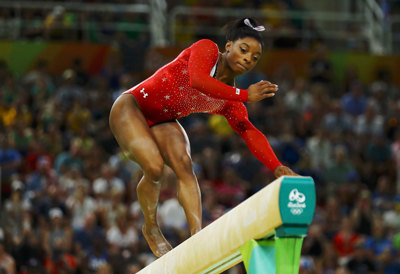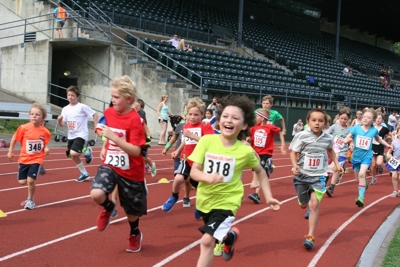Women’s sport is the fastest growing area of sport. The media rights of the leading women’s sport properties are likely to grow by 3-5X over the next 10 years. The quality of the product, inspiring athletes, and new audiences it attracts will drive the growth of traditional revenue streams in women’s sport. But what excites many about women’s sport is the opportunity for it to take the lead on high-growth revenue streams. One of these is betting.
Should women’s sport put betting at the centre of the product? In the Unofficial Partner podcast, Richard has put this question to many guests. The instinctive reaction is to answer with the “why not” – women’s sport has the opportunity to be better than that.
But is it right to hold women’s sport to a higher standard than men’s sport? And what will women’s sport miss out on if we do?
Does betting stack up?
Why should women’s sport embrace betting? The short answer would be that if betting can boost engagement, drive revenues, and generate data, then it should. But does this stack up?
Could betting boost engagement? Women’s sport needs to build and deepen its relationship with its audience to achieve its potential. Could betting drive wider and deeper engagement with women’s sport? Data from men’s sport certainly suggests so. A recent study showed that over 80% of Gen-Z agree that being able to bet on a sports league makes them more likely to be a fan of the league.
However, what makes women’s sport especially attractive to broadcasters and commercial partners is its ability to attract and offer a unique audience - one that is younger, more female, and more digitally savvy than many men’s sport. Is betting effective in driving engagement in this context? On the one hand, in the U.K., more men gamble than women and over 54% of gambling is done by people aged 35 – 55, with only 16% done by a younger age group (16-24). On the other hand, 70% of weekly sports bettors sit down to watch the full game, whereas only 48% of fans who do not gamble on sports do so
What about driving revenue growth? Betting is a significant revenue stream for men’s sport. £1.1 billion is generated through gambling on men’s professional football in England, and over £650 million in horseracing – although men’s football and horseracing only bring 9% and 17% respectively of the total money generated through betting back into the sport.
But does women’s sport risk alienating its current fanbase by pursuing betting? Many fans are attracted to women’s sport because of what it stands for, and its alignment with their purpose and values. Research has shown that purpose-led companies outperformed the S&P 500 by 10 times between 1996 and 2011. A recent Nielsen study showed that 55% of global respondents were willing to pay extra for products and services from companies that are committed to positive social and environmental impact. And a GWI study showed 50% of women’s sport fans strongly agree brands should act with purpose compared to only 20% of men’s sport fans. This suggests that women’s sport runs the risk of losing its competitive advantage if it puts betting at its core.
What about generating data? It is often said that what women’s sport needs to achieve its potential is data. Data on current and future audiences. Data on players. Data on performance. What role could betting play here? Sports betting goes hand in hand with the need for data on players, games, teams, performance. Women’s sport has traditionally lacked in adopting a data driven approach – could sports betting be the driver of shifting towards data & analytics, which would in turn drive commercial growth through ability to demonstrate ROI, create content and attract investment?
Putting the players at risk
Women’s sport players will be the biggest assets in sport. Successful sports and competitions will be those that take a player centric approach. So, what would betting mean for the players? Whilst the profile of women’s sport is increasing rapidly, most players still receive limited compensation and support. Average wages in the WSL are roughly 1% of the average Premier League wage, while many female players in the top-tier of English cricket and rugby are still balancing dual-careers. Given this context, a step change in betting on women’s sport would put incredible pressure on the players, and increase integrity risks such as match-fixing. If women’s sport does want to embrace betting, there must first be a step change in investment into the support provided to players to protect them and the game. A significant proportion of any revenue from betting must also go back to the players.
Betting, but better?
The conversation on women’s sport and betting often focuses on traditional betting. What about non-traditional betting? Is there an opportunity for women’s sport to do betting differently?
European Golf have recently partnered with more data companies but only with the guarantee that all bets are positive. You can bet on a golfer to make a birdie but not a bogey. 25% of all money spent in the National Lottery goes to good causes. The horseracing industry in Hong Kong brings in 100% of its betting revenue as it owns the betting platform itself so can reinvest this money into the sport and wider social development.
What about fantasy sports? The Fantasy Premier League has over 8 million players globally. Fantasy players are >60% more likely than average to watch highlights online multiple times a day and around 4/10 sports fans who play fantasy sports say it adds to the excitement of sports events.
These examples suggest there is a way to make betting better. And that the women’s sports who do pursue betting as a future revenue stream, should not ask the question of how to redesign their sport to make it a betting product, but how can they innovate betting and gamification to create something which is tailored to women’s sport’s core purpose and product. Could women’s sports lead the way in creating a non-traditional betting platform that is fit for the 21st century and aligns with its values? And could women’s sport own this platform so that all the revenue and data stay in the sport and is invested back into what will fuel the sustainable growth of the sport - the players, workforce, marketing, and infrastructure.
The time to do things differently is now
Women’s sport has huge social and commercial potential. We are rightly in a rush to grow the women’s game. Betting may be a part of this solution, but it’s important women’s sport doesn’t rush to the same betting model that is in men’s sport. Many men’s sports have been built on a commercial model that is fundamentally intertwined with betting. Women’s competitions should take the opportunity to take a different approach and build their brand from the start around being purpose-driven, which would be an identity and movement that is impossible for men's sport to replicate. In doing so, it’s also important that women’s sport apply these purpose driven standards consistently and must ask similar questions on subjects such as private equity investment.
In this rush, sport bodies and investors must also not overlook other more fundamental questions beyond betting. Many women’s sports have ended up with similar audiences to the men’s game. In our Re-Thinking sports pod, Kelly Simmons and Catherine Bond Muir reflected that audiences for many women’s sports are 60:40 male to female. This shouldn’t be a surprise when the format of many women’s sport products, competitions and calendars are very similar to the men’s. How many new and diverse fans, and therefore commercial value, is women’s sport leaving on the table through rushing to set up new competitions and missing out on the opportunity to fundamentally reshape the product in line with what these new audiences want?
Women’s sport is in a period of exceptional growth and will shape the future of sport. Betting may or may not be a part of the this, but the time is now for sport bodies and investors to think and act differently about their fundamental product and long-term business plans, structures and format to ensure we truly unleash its potential.
If you would like to discuss the future of women’s sport please contact me directly on pmassey@portasconsulting.com.
You can also listen to our recent pod or join our upcoming webinar on women in sports consulting.




